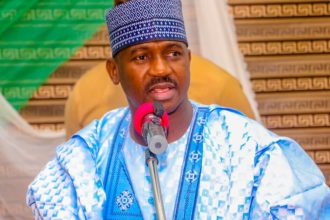Prominent civil society organisations have declared support for a bill seeking to mandate the conduct of a national population census every 10 years.
The proposed legislation sponsored by the member representing Ikorodu Federal Constituency, Lagos State, Babajimi Benson, is among the bills listed for consideration by the House Committee on Constitution Review.
Specifically, the bill seeks to amend Section 213 of the 1999 Constitution to empower the National Population Commission to conduct a national population and housing census once every decade.
The last population census was conducted in March 2006, which put the nation’s total population at 140,431,790—comprising 71,345,488 males and 69,086,302 females.
Despite huge financial commitments by the administration of former President Muhammadu Buhari, the planned census under his government did not hold. President Bola Tinubu’s administration has also pledged to conduct one to aid national planning.
Speaking with Saturday PUNCH, the Executive Director of the Civil Society Legislative and Advocacy Centre, Auwal Rafsanjani, expressed his organisation’s support for the bill while urging the Federal Government to commit adequate resources for its implementation.
He said, “We welcome the ongoing legislative move led by the House of Representatives to amend the 1999 Constitution to provide for the compulsory conduct of a population census every 10 years. At the same time, we call for the immediate consideration of adequate resources required for the successful conduct of the exercise.
“A comprehensive population census in Nigeria is long overdue. We cannot deny the fact that Nigeria is experiencing rapid and poorly planned population growth. The multiplier effects of this unplanned growth cannot be overemphasised.
“This has resulted in a demographic nightmare with challenges such as rising out-of-school children, maternal and child malnutrition, food insecurity, declining access to affordable healthcare, shortage of housing, rising unemployment, insecurity, insufficient infrastructure, unsafe pollution levels, and increased climate and disaster risks.”
Rafsanjani lamented that almost two decades had passed without another population and housing census since 2006.
“Without a comprehensive and up-to-date population database, Nigeria is left with inaccurate demographic, social and economic indicators, which hamper policy implementation,” he said.
In a separate interview, the Chairman of the Human and Environmental Developmental Agenda, Olanrewaju Suraju, praised the lawmakers for the initiative, stressing that a regular census would enable the country to plan effectively for current and future realities.
“This is a commendable move to emulate countries like the United States, United Kingdom, China and Brazil. The census and actual population of the country is essential data for planning, project design and resource allocation.
“Considering the complications and biases of Nigerian officials, it might be difficult to constitutionally provide for the conduct, but the process must be unimpeachable to ensure the outcomes are credible and reflect the true state of affairs,” he added.
Suraju urged NPC officials to ensure credibility in the next population exercise, expected to hold next year.
Similarly, pro-democracy advocate and founder of Women Arise, Joe Okei-Odumakin, also threw her weight behind the move.
“It is not a new development, as this is the global best practice in compliance with the United Nations recommendation that countries conduct a census every 10 years,” she said.









